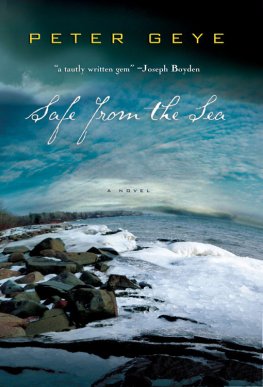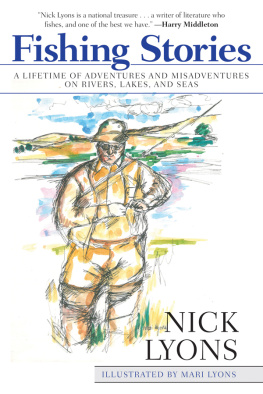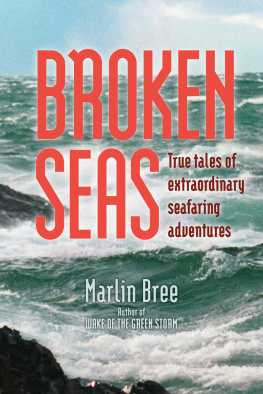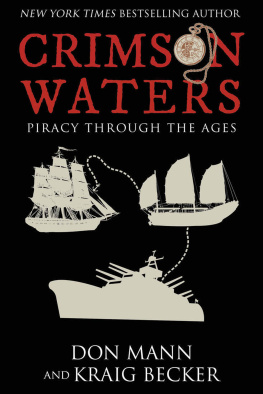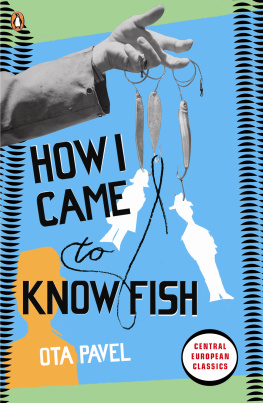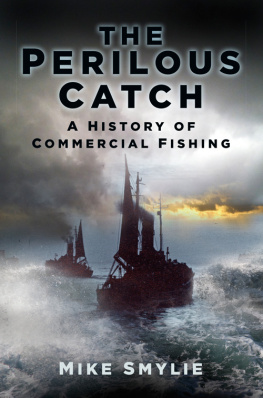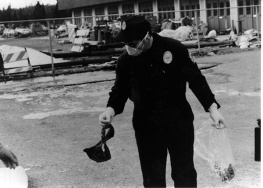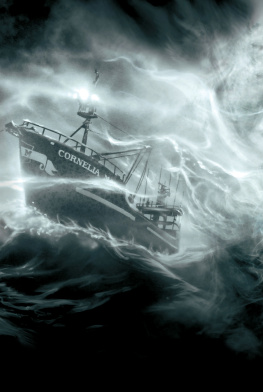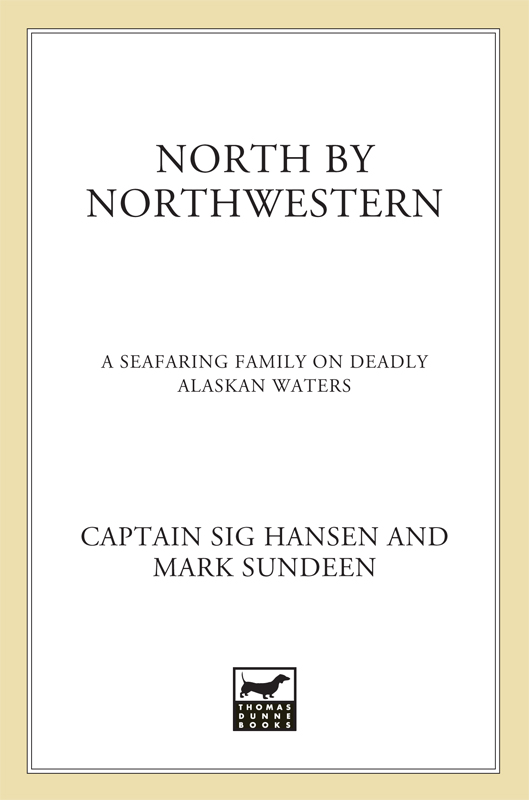
The author and publisher have provided this e-book to you for your personal use only. You may not make this e-book publicly available in any way. Copyright infringement is against the law. If you believe the copy of this e-book you are reading infringes on the authors copyright, please notify the publisher at: us.macmillanusa.com/piracy.
CONTENTS
My brothers and I dedicate this book
to our father, Sverre Hansen,
our uncle, Karl Johan Hansen,
and all the men who pioneered the crab industry
and paved the way for us to follow.
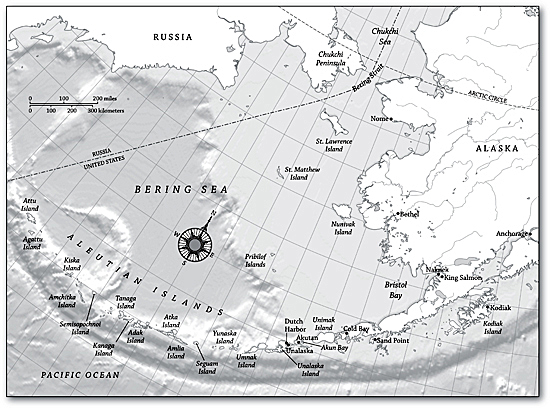
Prologue
When it started, the captain was in his bunk. It was eight in the morning, in early December. The gray dawn seeped through the black Alaskan night. Fueled by cigarettes and coffee, the captain was a light sleeper. But this night had been worse than usual. The vessel was bucking in 20-foot seas, the arctic wind howling at 60 knots. He had been lying half-awake for four hours, the heaves of the boat knocking him against the wall.
The captain and his three-man crew were jogging into the seas northeast of Dutch Harbor, in the Bering Sea, on the way to pull the crab pots they had set days before. The captain had manned the wheel the previous night, and finally at three in the morning hed let the deckhands take turns on watch while he tried to catch some sleep in his stateroom. No luck. Now it was almost a relief to hear the footsteps clomping in from the wheelhouse. It meant something was wrong, but at least it was an excuse to get up. The door swung open.
Im losing power, said Krist. The steering, the radios, the whole works.
The captain threw his feet off his narrow bunk. He had grown up in Norway during the war, and when his village was occupied by Nazis he admired the tough British who vowed never to surrender. One of his life heroes was the steely prime minister, Winston Churchill. The captain pulled on his slippers and stood. He wore heavy trousers and a sweater. The captain always slept fully clothed. He followed Krist out the door.
Of course the captain wasnt happy that the power was failing, but he was relieved to be getting out of bed. He got bored and restless when he wasnt working. He liked to work. He liked to work long hours, twenty hours a day, or sometimes when the fishing was good, he didnt bother sleeping at all. Thats the Lutheran ethic his father had drilled into him. Laziness was what ailed the weak and the cowardly. Work was good for you, the harder the better. Thats what he was here for.
As Krist returned to the captains chair and lay a hand on the throttle, the captain steadied himself in the doorway and lit a Pall Mall. The boat rose in the waves and collided with the crests, then dropped weightlessly into the trough. The seas were rough, but the captain had seen much worse. The fact that he could walk around the wheelhouse without holding on to anything, without being knocked off his feet, told him the seas were nothing to worry about.
He stood beside Krist at the console. The other two deckhands were asleep downstairs. Off to the west the sky was silky black. It was hours before sunrise, nothing to see out there anyway, just hundreds of miles of cold ocean between here and Russia. To the southeast, the jagged silhouette of sea cliffs came into focus on the horizon. The boat was only a few miles from Akun Island. If worse came to worst they could steam toward land and find a sheltered cove and make whatever repairs were required. Among the captain and the crew, there were mechanics, welders, painters, carpenters, and even firefighters. They could fix just about anything.
There were all sorts of reasons a boat could lose her steering out at sea. A hydraulic hose could have ruptured and drained the fluids that build pressure to move the rudder. A cable could have snapped. A line could be wrapped around the propellermaybe theyd run over the buoy of some other crabbers derelict potalthough this didnt seem likely because the hum of the engine down below sounded normal. That was a good sign, but losing all power was another problem altogether. Maybe it was something simple, like a short in the electrical system, or a breaker that flipped. The captain was not alarmed.
Ill go take a look, he told Krist.
The captain took a drag on his cigarette and pushed through the door of the wheelhouse to the upper deck. He was met by a blast of arctic cold as he emerged into a frozen nightmare. Icicles clung to the eaves of the wheelhouse, and a crust of ice was caked on the rails. The boat rocked and pitched. He placed his foot carefully now, the iced deck cold beneath his thin soles. Out in the dark gray morning he saw dim flashes of whitecaps, but mostly the monstrous waves were invisible, they were ghosts. The captain braced against the mast and looked down to survey the deck. They had already dropped all the crab pots, and yesterday he had ordered the men to scrub the planks, so the deck was clear except for a white blanket of snow from amidship to stern. Spools of line were coiled neatly, encased in thick frost. The crane creaked overhead like a gallows. Life rings hung on their hooks, frozen solid to the wall behind them so that not even the arctic gales disturbed them. As soon as he solved this power problem the captain would wake the crew and get them out here chopping ice. The ice weighed tons and rendered the boat so top-heavy it might capsize. The wind howled in the captains ears and he took a cold lungful of the sea air along with the hot tobacco smoke. The wind pierced his sweater. He shivered.
The captain had started fishing at age fourteen, with his father, who had started fishing as a boy with his own father. Like the rest of his crew, the captain came from the island of Karmoy, a fishing port on Norways western shore. Back then, young men did not have a lot of options. If you couldnt get into school, and your family didnt own farming land, you went to sea.
The captain had gone to sea. He fished for herring and cod, up and down the Norway coast, as far away as Iceland. There were a few good years of herring, but then it was overfished. The boats lay in port. Times were hard. When he was twenty, the captain lit out for America. He fetched port in Seattle, in the old Norwegian waterfront neighborhood of Ballard. He was young and strong and could work hard and he spoke a few words of English. He did what fishermen have done for hundreds of years: walked the docks for work. He was hired on a trawler, the Western Flyer, dragging for bottom fish. He never looked back.
Those days were far behind him now. The fishing around Seattle had declined, and the captain joined an intrepid band of fishermen to explore the northern waters of Alaska. What they found was a gold rushthe red spiny kind that walked on eight legs. King crab. There was a fortune to be made in the Bering Sea, but the risks were high: brutal storms with 60-foot waves, hurricane winds of 130 knots, freezing spray, and treacherous ice caked on every surface. Older fishermen thought it was suicidal.
In those days Dutch Harborwhich would eventually surpass San Diego as the richest commercial fishing port in the United Stateswas just a weather-beaten outpost with a handful of natives and soldiers, and a very rough bar to drink in. Japanese vessels had trawled for crab for decades, but it wasnt until the daring Americans and Norwegians began tinkering with boxlike steel traps that crab fishing reaped huge profits. The captain and his ilk were pioneering crab fishing on the fly.


